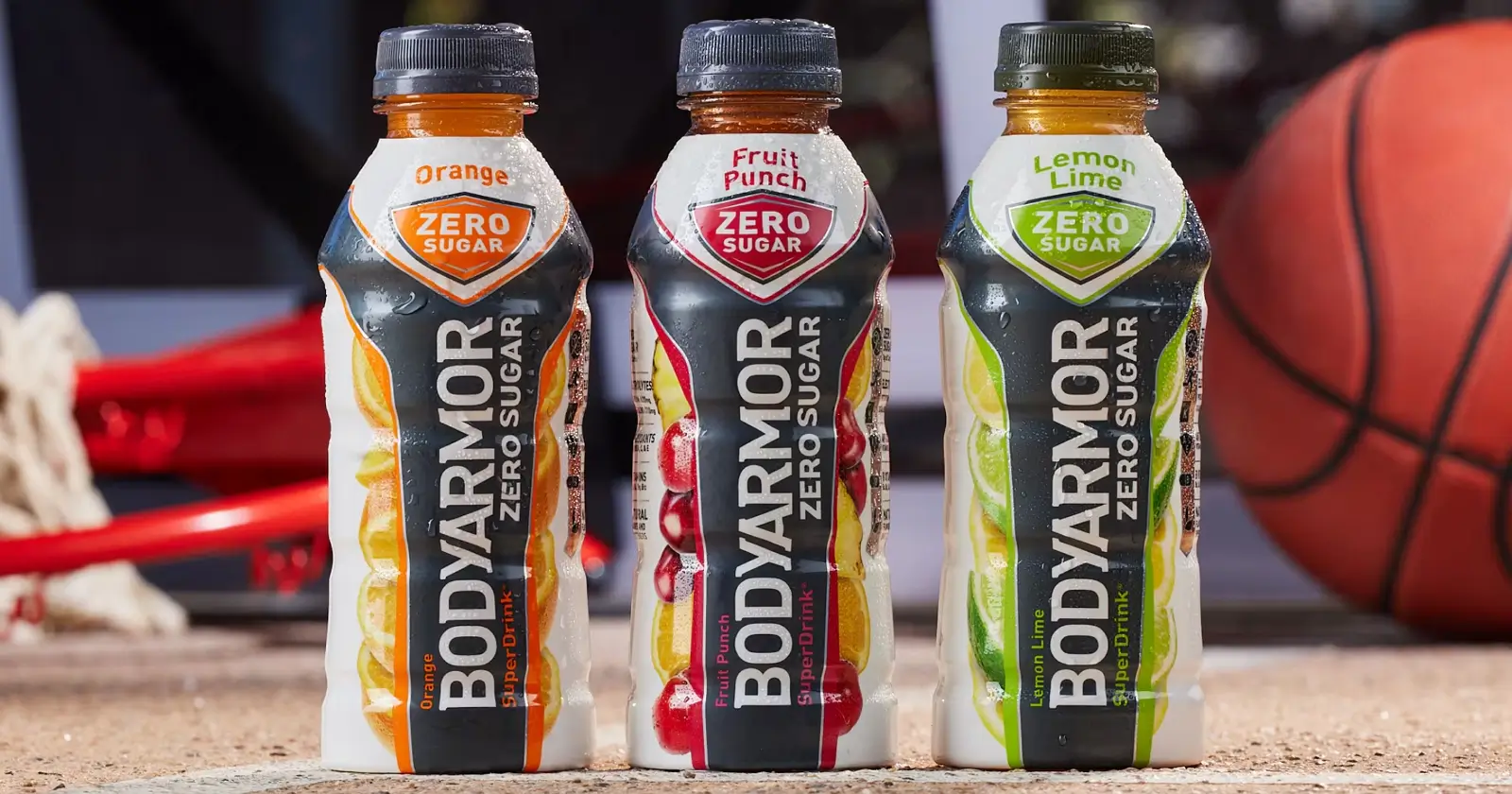Do you remember when Gatorade was the go-to sports drink? Nowadays, the sports drink section is bustling with new brands, providing plenty of options for those who exercise frequently and haven’t yet discovered their favorite. According to Healthline, sports drinks are effective in maintaining hydration by replenishing electrolytes lost during prolonged physical activity. However, it’s important to recognize that not all sports drinks are created equal.
Bodyarmor is currently garnering attention as a new player in the market. The Bodyarmor website reveals that the company was established in 2011 by Mike Repole. After gaining traction, partly due to the late Kobe Bryant’s involvement, Coca-Cola acquired a stake in the company in 2018. Bodyarmor continues to expand, highlighting its low sodium, high potassium content, and absence of artificial colors or sweeteners. It sounds like a healthy choice, doesn’t it?
Bodyarmor might be recommended, but do you need it?
When compared alongside other sports drinks, Bodyarmor generally lives up to its claims of being a healthier alternative. Karin Adoni Ben-David, a certified nutritionist and health coach, reviewed Bodyarmor Fruitpunch for InsideHook and gave it a positive assessment. “Overall, this product has appealing ingredients,” Ben-David states, adding, “I appreciate the use of coconut water as a source of electrolytes. The product is enriched with vitamins, which benefit your body. I’d consider it a good option for a sports drink.”
While Ben-David approves of the ingredients, there’s skepticism regarding the necessity of sports drinks for hydration. According to The Washington Post, 90% of Americans don’t require fortified drinks, as they obtain sufficient nutrients from their diet. In fact, many might be consuming excess ingredients through daily supplements and fortified foods. Nonetheless, Bodyarmor offers a nutrient beneficial for post-workout recovery.
The importance of potassium for your fitness goals
Potassium plays a vital role in your fitness regimen, regulating blood pressure, balancing fluids, and enhancing bone health (via Healthline). As both a mineral and electrolyte, potassium is particularly crucial after exercise, aiding in energy maintenance and preventing muscle cramps, per Livestrong. Intense workouts can cause the loss of essential electrolytes like potassium, which are essential for optimal muscle function.
According to Healthline, 98% of adults fall short of their recommended potassium intake. While individual needs vary, a general guideline recommends between 3,500 and 4,700 milligrams daily, per Healthline. A 12-ounce bottle of Bodyarmor provides 530 milligrams of potassium, which can help prevent cramps during and post-exercise. Potassium-rich foods like tomatoes, bananas, spinach, potatoes, and yams are also excellent sources (via Healthline).
The benefits of coconut water found in Bodyarmor
Bodyarmor incorporates coconut water, which aids in rehydration post-workout as it is approximately 94% water and rich in electrolytes and antioxidants (via Healthline). A single cup of coconut water contains around 15% of your daily potassium requirement, a mineral known for its benefits in post-exercise recovery. Coconut water may also help regulate blood sugar and reduce heart disease risk by improving cholesterol and blood pressure levels, per Healthline.
Research indicates that coconut water may outperform water and sports drinks in rehydrating the body after rigorous exercise. A 2014 study published in the Motriz Journal of Physical Education compared the effects of plain water, a sports drink, and coconut water. Participants who consumed coconut water demonstrated better performance when exercising in heat and maintained superior fluid levels compared to the other groups.
Bodyarmor’s sweet problem
Despite the advantages of Bodyarmor’s ingredients for recovery and rehydration, its high sugar content is a common drawback shared with many sports drinks. While high-performance athletes praise sports drinks, there’s debate over whether they are beneficial or detrimental for those not engaging in extended workouts (via SELF).
Though Bodyarmor contains “nice” ingredients, examining the sugar content is crucial. For instance, a 16-ounce bottle of Bodyarmor has 140 calories and 36 grams of sugar. In comparison, a 16.9-ounce bottle of Pepsi contains 58 grams of sugar, not much more than Bodyarmor’s sugar level.
Given that sports drinks can have almost as much sugar as soda, consuming them during light or moderate activity might negate any calorie or fat-burning benefits (via Healthfully). Mary Jane Detroyer, a registered dietitian and exercise physiologist, advises, “If you go to the gym for 60 minutes and aren’t sweating heavily, water suffices.” For extended workouts requiring a boost, Livestrong suggests diluting sports drinks with water to reduce sugar content.




